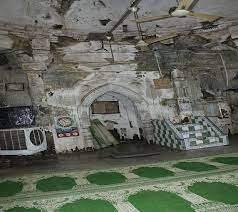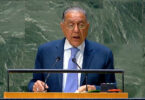NEW DELHI (KMS): A 16th-century mosque was sealed by the district administration in Indian state of Maharashtra’s Erandol town after a Hindutva group claimed that it was built after demolishing a Hindu religious structure.
Following the sealing, the mosque trust moved the Aurangabad High Court.
Advocate Shahid Nadeem, who is representing the Mosque Committee Trust in the matter, told media that the trust has challenged the district collector’s order. The trust has also sought that namaz is allowed in the mosque.
He said he sought an urgent hearing considering the gravity of the issue. But the court decided not to list the case.
“Let’s see when the matter is heard. We wanted urgent hearing,” he added.
Advocate Nadeem said that the collector’s order was illegal as the mosque stands on a registered Waqf property. It’s only Waqf tribunal which takes decisions with regard to Waqf properties. The collector has bypassed the Waqf tribunal, he added.
“Prima facie, the order seems to be illegal,” he said.
Meanwhile, concerns grew among Muslims in the town after the Jalgaon District Collector Aman Mittal imposed a temporary ban on prayers in the mosque under CrPc Section 145.
He shared a video with media which shows a large number of people saying prayer in the mosque. He also shared the documents which show that the mosque is a Waqf property.
However, a Hindutva outfit Pandav Vara Sangharsh Samiti has claimed that the mosque was built after demolishing Pandav Vara at the site. On May 18 this year, Pramodhusadan Dandvate, the president of the Hindutva outfit, filed a complaint with the Jalgaon district magistrate claiming its land was illegally occupied by the mosque’s trust. Therefore, the mosque should be surveyed and sealed, he had pleaded.
According to local media reports, Mittal summoned the petitioner, the mosque trustee, the Tehsildar and the representative of the Archaeological Survey of India (ASI). After hearing them all, Mittal issued the order banning namaz in the mosque. Section 144 was also imposed by the administration in view of the sensitivity of the issue.







